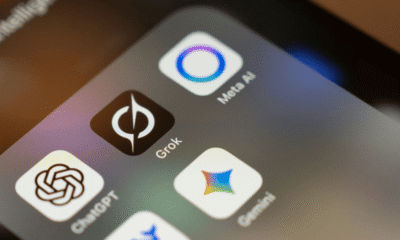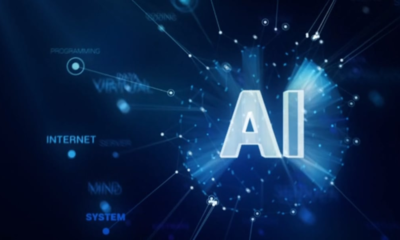AI Transformation (AX) using artificial intelligence (AI) is spreading throughout the domestic financial sector. Beyond simple digital transformation (DX), the strategy is to internalize AI across organizations and services to achieve management efficiency, work automation, and customer experience innovation at the same time. Financial companies are moving the judgment that it will be difficult to survive unless they raise their AI capabilities across the company in an environment where regulations and competition are intensifying. AX’s core is internal process innovation and customer service differentiation. AI can reduce costs and secure speed by quickly and accurately handling existing human-dependent tasks such as loan review, risk management, investment product recommendation, and internal counseling support.
At customer contact points, high-quality counseling is provided 24 hours a day through AI bankers, voice robots, and customized chatbots to increase financial service satisfaction. Industry sources say, “AX is not just a matter of technology, but a structural change that determines financial companies’ competitiveness and crisis response.”
First of all, major domestic banks and financial holding companies began to introduce in-house AI assistant and private large language model (LLM), establish a dedicated organization, and establish an AI governance system at the level of all affiliates. It is trying to automate internal work and differentiate customer services at the same time by establishing a strategic center at the group company level or introducing collaboration tools and AI platforms throughout the company.
KB Financial Group has established a ‘KB AI strategy’ and a ‘KB AI agent roadmap’ to introduce more than 250 AI agents to 39 core business areas of the group. It has established the ‘KB GenAI Portal’ for the first time in the financial sector to create an environment in which all executives and employees can utilize and develop AI without coding, and through this, it is efficiently changing work productivity and how they work.
Shinhan Financial Group is increasing work productivity with cloud-based collaboration tools (M365+Copilot) and introducing AI to the site by affiliates. Shinhan Bank placed Generative AI bankers at the window through the “AI Branch,” and in the application “SOL,” “AI Investment Mate” provides customized information to customers through card news.

Hana Bank is operating a “foreign exchange company AI departure prediction system” using its foreign exchange expertise. It is a structure that analyzes 253 variables based on past transaction data to calculate the possibility of suspension of transactions and automatically guides branches to help preemptively respond.
Woori Financial Group established an AI strategy center within the holding under the leadership of Chairman Lim Jong-ryong and deployed AI-only organizations to all affiliates, including banks, cards, securities, and insurance.
Internet banks are trying to differentiate themselves by focusing on interactive search and calculation machines, forgery and alteration detection, customized recommendations, and spreading in-house AI culture. As there is no offline sales network, it is actively strengthening customer contact AI innovation such as app and mobile counseling.
Kakao Bank has upgraded its AI organization to a group and has more than 500 dedicated personnel. K-Bank achieved a 100% recognition rate with its identification card recognition solution using AI, and started to set standards by publishing papers to academia. Toss Bank uses AI to determine ID forgery and alteration (99.5% accuracy), automate mass document optical character recognition (OCR), convert counseling voice letters (STT), and build its own financial-specific language model.
Insurance companies are increasing accuracy, approval rate, and processing speed by introducing AI in the entire process of risk assessment, underwriting, and insurance payment. Due to the nature of the insurance industry, the effect of using AI is remarkable as the screening and payment process is long and complex.
Samsung Fire & Marine Insurance has more than halved the proportion of manpower review by automating the cancer diagnosis and surgical benefit review process through ‘AI medical review’. The machine learning-based “Long-Term Insurance Sickness Screening System” raised the approval rate from 71% to 90% and secured patents.
Industry experts view this AI transformation as a paradigm shift in the financial industry, not just the introduction of technology. It is necessary to create new added value and customer experiences beyond cost reduction and efficiency through AI. In particular, it is evaluated that the differentiation of financial companies will be strengthened only when AI and data are directly connected to resolving customer inconveniences.
However, preparing for ethical, security, and accountability issues is considered an essential task as much as the speed of AI’s spread. Failure to manage risks such as the impact of large language models on financial decision-making, personal information protection, and algorithmic bias can lead to loss of trust. This means that the process of developing accumulated experiences into industrial standards through small experiments is of paramount importance.
[Reporter Lee Soyeon]









































